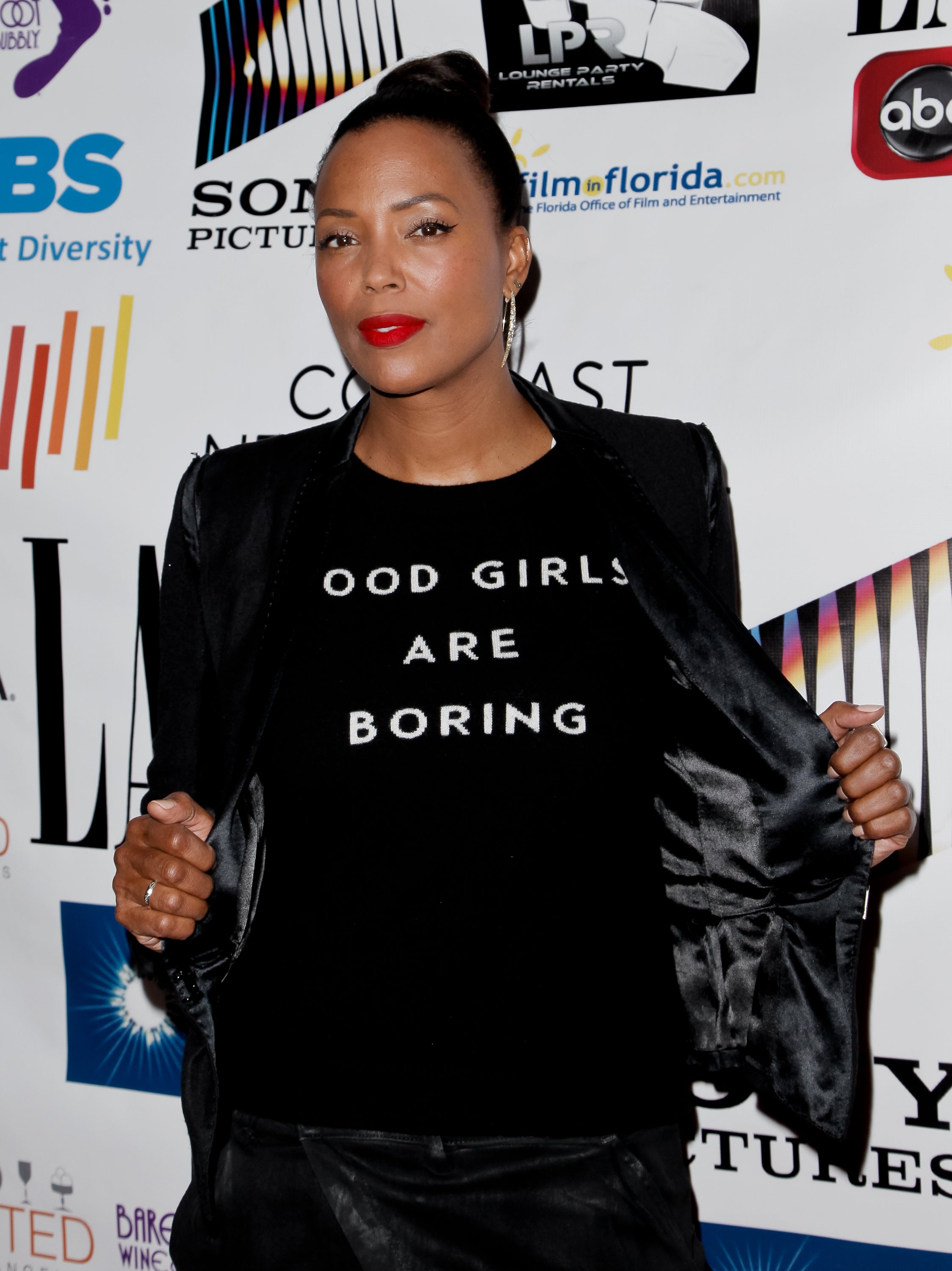
We know the magnitude of fighting for equal access to education, jobs and housing…but how often do you consider equal access to a clean environment? A rising number of African-American activists, entertainers and policymakers in the green movement are working to ensure just that, and helping our community understand that doing good things for the Earth is in our best interest. This Earth Day, we salute Black leaders devoted to saving our planet, cleaning our communities, and creating green jobs.
The Revolutionary: MAJORA CARTER
Think environmentalism is about saving polar ice caps? Carter, 42, is determined to bring the issue right to your front door. “African-Americans need to know that their self-interest is tied up in the environment,” she says. “I’m interested in helping them see that this affects them.” In 2001 Carter founded Sustainable South Bronx, which aims to advance green spaces and clean air in New York City’s South Bronx neighborhood. The organization also established a green job-training program. Today, as president of her own consulting organization, the Majora Carter Group, she advises corporations and community groups on resolving environmental problems.
The Eco-Enforcer: LISA P. JACKSON
“The President has literally changed the face of environmentalism,” says Jackson, the first African-American administrator of the Environmental Protection Agency (EPA). In addition to passing unprecedented limits on air and water pollution, Jackson, 47, has made it a priority to reach out to constituencies that suffer disproportionate environmental risk, appointing a Senior Advisor for Environmental Justice and partnering with the Congressional Black Caucus for the Environmental Justice Tour. Launched in January, the tour involves meeting disadvantaged communities around the country to work with local officials and activists on solutions to environmental challenges.
The Trendsetter: WILL.I.AM
Inspired by Al Gore’s acclaimed documentary An Inconvenient Truth, the Black Eyed Peas front man penned “S.O.S.” and later wrote “Take Our Planet Back” to enlighten fans about global warming. The star, 34, who drives an electric car and is outfitting his house with solar panels, says his ultimate goal is to be entirely energy self-sufficient. “I am brown,” says Will, “but I want to be green.”
The Job Creator: OMAR FREILLA
As founder of the Bronx umbrella organization Green Worker Cooperatives (GWC), Freilla, 35, helps urban communities turn trash into “green collar” jobs. When a developer tears down abandoned apartment buildings, for example, throwing out everything including the kitchen sinks, ReBuilders Source, backed by GWC, salvages those sinks–as well as doors, windows, you name it–to be used again. Says Freilla: “Transforming our communities happens when people start thinking of themselves as having the power to make decisions over their own lives.”
The Green Goddess: TAJA SEVELLE
When singer-songwriter and former Prince protg Sevelle hit Detroit in 2004, she was immediately struck by the green potential of the area’s miles of vacant lots filled with trash. With $5,000 of her own money, Sevelle, 47, planted tomatoes, basil, collard greens and corn. Now the executive director and founder of the international nonprofit Urban Farming, which is headquartered in Detroit, Sevelle works with her team to oversee more than 600 community gardens in five countries and 14 cities, including Los Angeles and New York. “During World War II, nearly 20 million Americans planted gardens on their lawns and grew 40 percent of our nation’s produce,” she says. “So when we say we want to get rid of hunger in our generation, that model has already been done.”
The Scientist: WARREN WASHINGTON
The head of the climate-change research section at the National Center for Atmospheric Research, Washington was one of the first scientists to analyze climate change using computer models. His groundbreaking research has contributed to our current understanding of global warming. “There’s increasing evidence that as the atmosphere gets warmer, hurricanes are more intense,” says Washington, 72, who notes this would affect “low-lying places in the coastal areas where a lot of African-Americans live.”
The Advocate: AISHA TYLER
Raised vegetarian, Tyler penned her college thesis on global warming. These days the San Francisco native sits on the advisory committee of Parks for People, a nonprofit organization that provides recreational green space. The actress-comedian, 38, also outfitted her home with low-flush toilets, a tankless water heater and double-paned windows. Up next: solar panels and a water recycling system. Her biggest challenge? “My husband is 6 feet 7; I can’t stuff him into a Prius!”
The Justice Seeker: ROBERT BULLARD
Fresh out of graduate school in the late 1970’s, sociologist Bullard noticed that almost all the landfills and incinerators in Houston were located in predominantly Black neighborhoods. To Bullard, 62, director of the Environmental Justice Resource Center at Clark Atlanta University, it was clearly racist. Addressing this inequity became his life’s work, traveling around the country to assist communities in organizing against industrial pollution in their neighborhoods and educating the public about the widespread practice. “Environment, race, politics–it’s all connected,” he says.
The Crusader: PHAEDRA ELLIS-LAMKINS
If African-Americans are beginning to see the green movement as a path to more jobs, it’s thanks to the efforts of Phaedra Ellis-Lamkins. As CEO of Green for All, a national organization aimed at decreasing poverty through the development of green energy jobs, last year Ellis-Lamkins successfully lobbied to include in the clean energy bill provisions ensuring that low-income communities have access to green jobs created by the proposed legislation. The bill, which promises to reduce pollution and create millions of new jobs in the green sector, is currently awaiting Senate approval. “People told us this was impossible,” says Ellis-Lamkins, 33. “But we spent six months working on this issue. We were like the little engine that could.”
